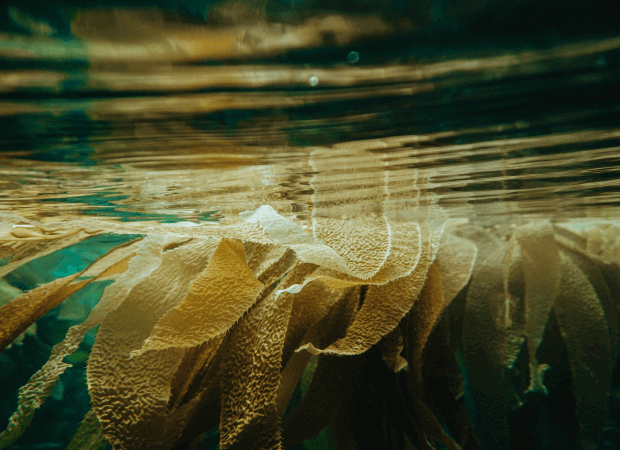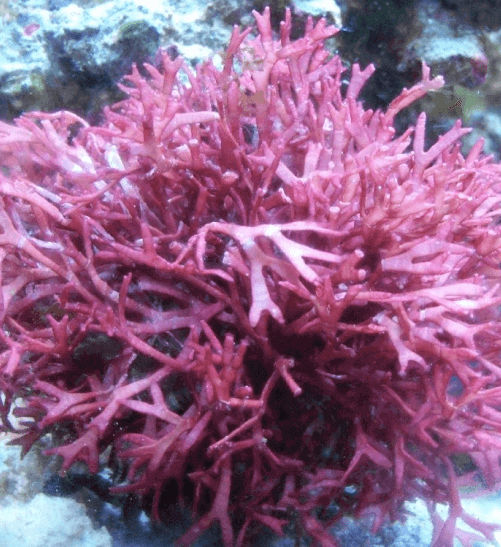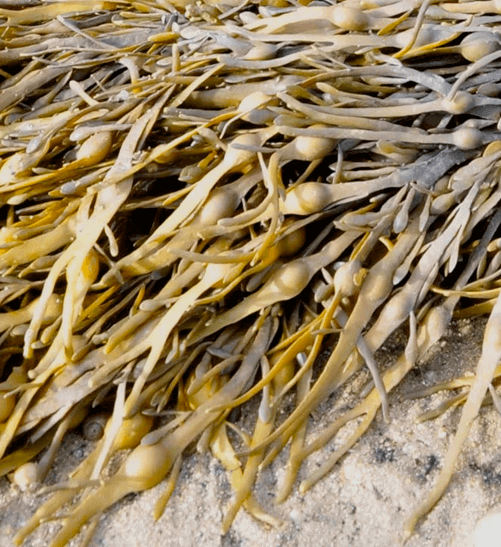
Snow Sea
Snow Sea
Архангельский завод морских водорослей


The Arkhangelsk Seaweed Factory collects two types of seaweed – Laminaria saccharina and Laminaria digitata. The collection happens from June to September. Twice a day, workers go out to sea with scythes on long handles. With these tools, it is easy to cut seaweed or wrap it, like spaghetti, from the very bottom of the sea. Then the collection is dried and delivered to the workshops of the factory.
The first type of laminaria is large greenish-brown plants. They can be found at a depth of 1.5 to 6 m. In texture, they are similar to corrugated paper. They are 4–6 m long. These giant ribbons are difficult to associate with jars of laminaria, isn’t it? But that’s what it is! Laminaria saccharina is collected to be eaten.
Laminaria digitata has the part “digitata” in it for a reason. It resembles a dark green hand with long digits. It grows 10–12 m deeper underwater than the first type mentioned earlier. This seaweed does not exceed 70–160 cm. This type is smaller than Laminaria saccharina in size, but not in value. It is used in medicines and dietary supplements. Also, this seaweed’s extracts play a technical role in varnishes and polishes, resins, and perfumes.
Why is this laminaria so valued? Both types of seaweed contain 70 elements of the periodic table, which they absorb from the environment. It is interesting that the concentration of some elements in seaweed is sometimes 10s and sometimes 1000s times higher than in seawater.
As you can see, Laminaria digitata and Laminaria saccharina are real gifts of the sea – balanced natural complexes of vitamins and minerals. The microelements in these two types of seaweed are parts of organic compounds, which are better absorbed by human bodies. That is why laminaria is essential to your diet. Especially, if you live far from sea, in a harsh climate, and under the influence of harmful environmental factors.

Do you know a plant called ahnfeltia? This is the type of red seaweed that you have most likely repeatedly encountered on several occasions. Agar, which can be found in many kitchens, is made of it. And to no surprise! After all, cooking with it is not only easy but also very tasty and healthy. Do you want to make a homemade jelly with berries and fruits? Or maybe a fish or meat aspic? Then this product will help you bring about your plans! Iodine is also produced from ahnfeltia. And these are not the only beneficial functions and features of the seaweed. Want to know more? We will be happy to tell you because ahnfeltia deserves your attention.

Fucus is a brown seaweed that has been valued since ancient times for its useful properties. It contains a great number of useful substances, which makes it an irreplaceable food supplement. Fucus is also able to normalize metabolism and is an excellent helper for weight loss. It strengthens the immune system and removes harmful substances from the body. Fucus prevents thyroid gland diseases, as well as helps calm down and cope with stress. The use of fucus in cosmetology also should not be forgotten. It has proved itself to be an excellent active substance in skincare products. This particular seaweed can make our skin beautiful, healthy-looking and tighten it up. Are you interested? Then let's find out a little more about fucus!